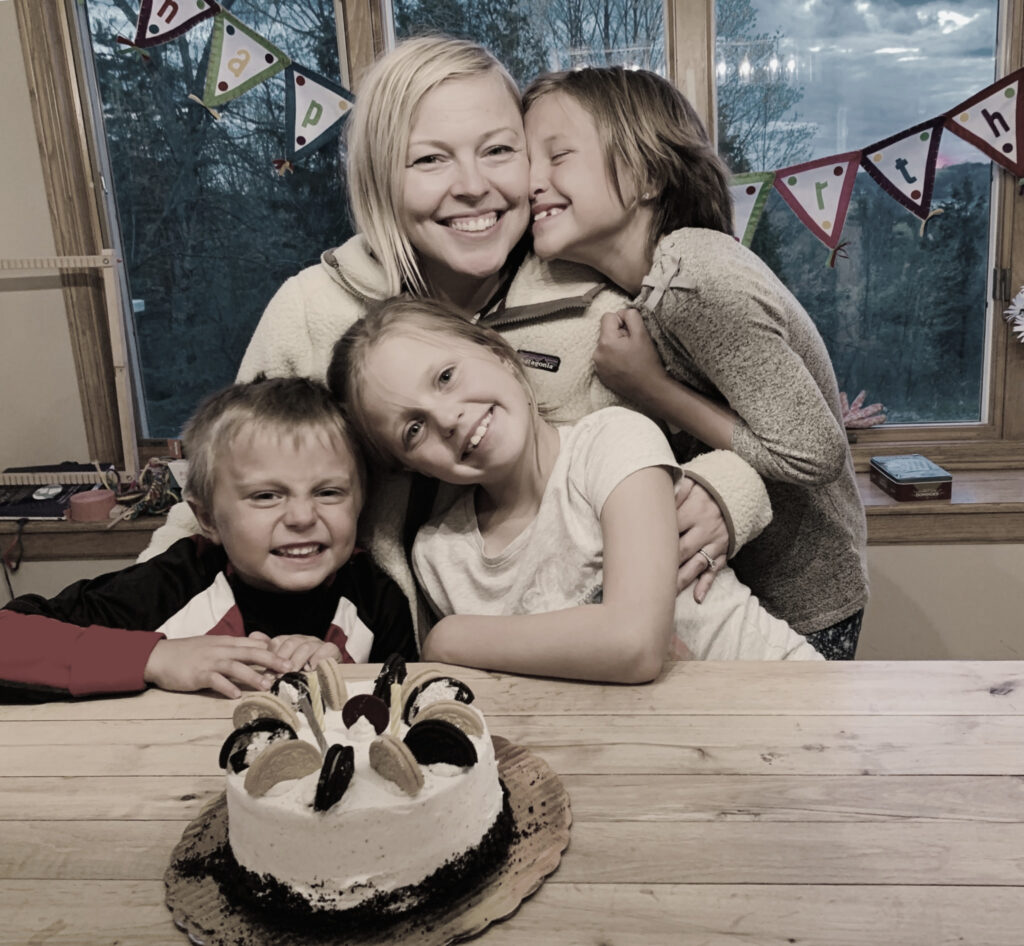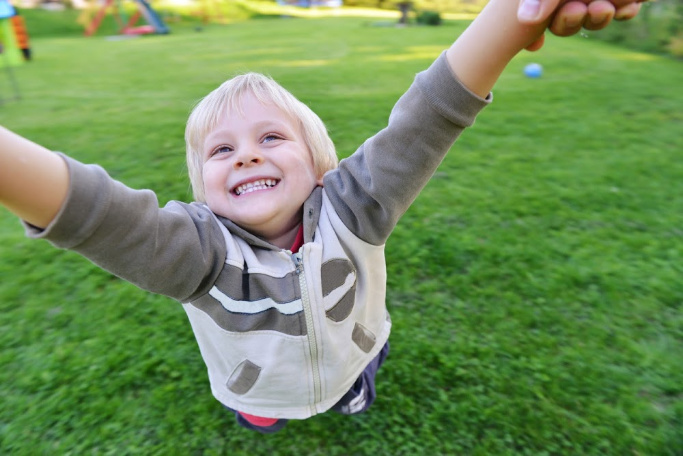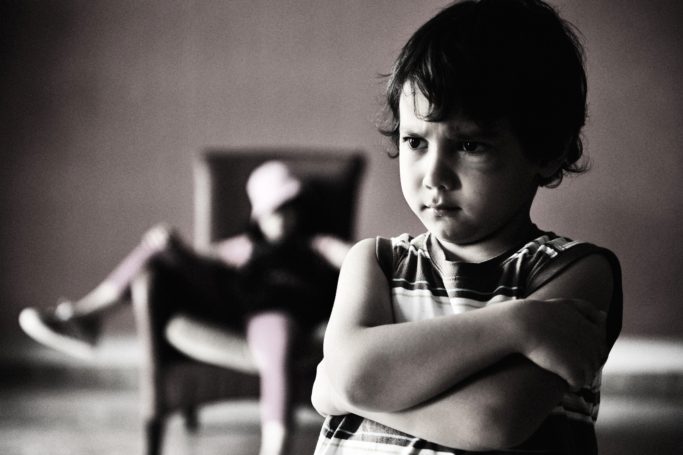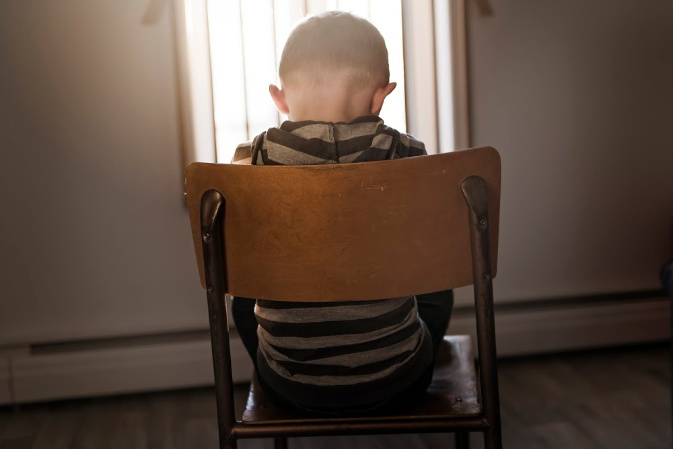Unconditional Love: 10 Surprising Ways Your Child Needs You to Show It
Inside: Learn 10 Ways Parents can practice unconditional love with their child and why it’s so important to their child’s emotional development.
⭐️Free 9-page Expert Master guide⭐️>> 5 Secrets to MORE cooperation and LESS conflict with your strong-willed child (Click here to grab)
“I don’t think he’ll wake up from the flash…” I think to myself as I stand over my sleeping 6-year-old and sneakily position my phone to snap an angelic picture of his perfect little nose and feathered eyelashes.
It’s hard to describe how this moment feels as a parent isn’t it?
For me, it’s sort of as if everything else in the world has melted away and the only thing strong enough to remain is the radiating reverberating unconditional love I feel for my child. The…
I can’t believe you’re mine love.
I’d throw myself in front of a bus for you at any moment necessary, love.
Tomorrow I’m going to make sure you know just how far and just how unconditionally my love for you stretches, love.

Then the sun starts rising and alarm clocks start sounding (I’m convinced hell must be chock-full of alarm clocks), and all of the minutiae that had melted away the prior evening is now relentlessly assaulting me from every angle.
Life ‘turns on’ and very quickly my affection towards my children starts sounding less like radiating unconditional love with no strings attached, and more like very impatient conditional love with “do the things now child if you’d like to live another day” type of strings attached.
Conditional Love Meaning
Conditional love is simply, love with conditions. This means that your love for your child is contingent on their actions, or things happening with them (or not happening).
Conditional love might make a sneaky appearance in comments like these:
“We do so much for you every day and this is how you repay us?”
“Your brother manages to make it out to the car on time every morning, why is it so difficult for you?”
“Why do you insist on doing everything you can to make homework more stressful?”
“You’re going to wear THAT?!”
Read >> 50 Fun and Calming Bedtime Activities for Kids
Parenting is arguably the hardest job on the planet, and if we’re honest, most adults in general often have lots of subconscious ‘invisible strings’ attached when it comes to showing love and affection to children.
These strings likely stem from the natural power imbalance that exists in the parent-child relationship in combination with the antiquated and harmful views of past generations that sought to dehumanize children.
Thankfully, we now live in a world with a growing awareness of the respectful care and conditions needed to raise healthy thriving humans.
It is because of this power differential inherent in the parent-child relationship that it is essential to be aware of sending the message that our child ‘owes us’ us for the duties that in fact, we accepted and agreed to when we made the decision to bring another human being into the world.

Unconditional love meaning
“Unconditional love is known as affection without any limitations, or love without conditions. This term is sometimes associated with other terms such as agape love or complete love.
Each area of expertise has a certain way of describing unconditional love, but most will agree that it’s a “type of love which has no bounds and is unchanging.”
It means offering love to your child without any expectation of repayment.
When we put that definition into the nitty-gritty context of everyday life with kids, I think unconditional love looks a lot like Loving your child even when it’s really really stinking hard.
For children, love and attachment are primary needs that create the foundation for almost all social and emotional development.
I love you unconditionally
I know without a doubt that the love I have for my children (sleeping angelically or not) is unconditional love. I’m also fully aware that when stressed, I might act in ways that indicate otherwise.
On a day-to-day basis, was I communicating my unconditional love effectively enough to my children?
On any given day, were they able to ‘file away’ more examples of unconditional love or in fact, conditional love?
After all, love is communicated primarily by actions and not by words or loving bedtime photo shoots…
I started thinking, what actions can parents take each day to communicate how they truly feel about their child beneath it all? I love you unconditionally forever and ever.
10 Ways to Demonstrate Unconditional Love for a Child
Time
Children are concrete thinkers, meaning ‘a more literal form of thinking that focuses on the physical world”. This means that demonstrations of love that they can see, touch, and feel will most strongly communicate to them.
Read >> 10 Strong-Willed Child Characteristics (and how to deal with them effectively)
When your child sees you taking time each day to get down on the floor and play that brutally boring board game or read Goodnight Goodnight Construction Site for the ninth time this week, they have a ‘real-life’ tangible example of what your unconditional love looks and feels like.

Accepting ALL emotions
One of the most powerful ways your behavior will communicate ‘I will love you unconditionally’, is to show your child they won’t be shut down or minimized when they’re experiencing powerful emotions.
It’s time to permanently put to sleep those catchy toxic go-to phrases, “don’t cry” “oh you’re fine”, “suck it up and deal with it” or, “you’re seriously going to cry about THAT”.
If you want to kick these unhelpful responses to the curb, I’d recommend closing your eyes and imaging your partner/significant other saying these things to you while you’re in a highly emotional state.
The horrible instant visceral feeling you get will serve as an ongoing reminder to respond to your child’s emotions the way you’d like yours to be responded to.
Setting limits and boundaries
Sometimes parents misinterpret the term unconditional love to mean ‘love without boundaries’.
If you didn’t have healthy limits set for you as a child by your caregivers in a respectful way, it will be exponentially more challenging to make tough calls when necessary (even when they’re in the best interest of your child).
If you grew up with overly stringent limits that were enforced with unhealthy motivators like fear or even physical punishment, you may find yourself either unwittingly falling into those same harsh reactions with your child, or taking the opposite route, and finding it very difficult to enforce any limits due to the temporary discomfort it provokes in your child.
Healthy boundaries and limits set confidently and respectfully, go hand in hand with unconditional love, because they meet your child’s vital primary needs for safety and security.
When you set limits for your child, you’re essentially communicating, no matter how hard and uncomfortable it is for you or me at this moment, I will see the bigger picture and try to do what’s best for your well-being.
Accepting their personality traits
Every child comes into the world with certain characteristics and tendencies ‘hard wired’ into them. These factors known as temperament and personality have been studied for many decades and play a large role in how your child interacts with the world around them.
Getting to know your child’s personality traits and tendencies will allow you to work with them when necessary and help to support and encourage their unique and amazing gifts.
Some examples:
My child needs to move a lot, how can we find acceptable ways to move throughout the day in school?
My child is highly emotional, what support might they need to manage their emotions more effectively?
When you have either very similar or very different traits to your child in a given area, you may need to work harder to accept and support them.

Offering empathy
Climbing out of your adult brain to offer your child empathy, or the capacity to understand or feel what your child is experiencing, is perhaps the most powerful way to demonstrate your commitment to acknowledging and validating your child’s human experience.
When you try to imagine what it might be like to ‘walk in your child’s shoes when they’re fighting with their sibling or need to leave the classroom to attend a special needs learning group, you’re then able to offer the understanding and compassion your child needs to feel understood and loved unconditionally no matter what challenging situation they’re in.
Letting them persue their own interests
You spent your best years on the football field and you’ve always fantasized about the day your child would be ready for flag football, but as you’re downloading the registration form you hear their small voice, “I’m not playing football dad, I don’t want to get hit”.
There are two different directions this conversation can go. One is about meeting YOUR needs and the other is about meeting your child’s needs, and we’ll just leave it at that.
Offering forgiveness and grace
I can never hear this quote from Rebecca Eanes enough as a parent,
“Sometimes we expect, or even demand, a level of maturity our child has not reached. We project our fears and anxieties onto them instead of trusting. They all bloom in their own time. Tend the garden, and wait”.
Your child’s fastest path to learning is living. Your child is moving through the stages of human development while doing the best they can with the skills they have.
Your child will make mistakes and missteps, and these opportunities can either be used to help them learn through teaching (aka discipline), natural consequences, and learned accountability (fixing your mistakes), or what it feels like to be shamed and criticized.

Be on their team
Why ‘pick your battles’ instead of finding ways to facilitate peace?
While it is necessary to decide what limits and boundaries you will prioritize, you don’t have to go literally to battle with your child in the process.
Why not use your natural inherent power as the parent, to team up with your child and instead go to ‘battle’ with their challenges, together?
It’s “You had better get your act together or else!” vs. “It looks like being in the toy aisle is stressing you out, let’s find some ways to slow down and get under control together”.
When your child sees that you’re there for them even when things don’t look pretty in the Target checkout line, they’ll develop the trust essential for a relationship rooted in unconditional love.
Stop taking their behavior personally
While it may be easier to think of your child as the more self-centered one… often adults are incredibly short-sighted when it comes to their child’s behaviors.
We lament, “Why are they doing this to me?!”, “She’s just pushing my buttons!”, “This is a clear sign of disrespect!”
When actually, your child was too sleep-deprived to regulate her emotions, too ‘pre-school brained’ to have the impulse control to stop whining about the happy meal, and too passionate and focused about soccer to leave the field the first time asked.
When it comes to your child’s behaviors, it’s time to get over yourself and move on to what’s really going on for them.
Setting aside your own emotional experience to consider your child’s experience and support their needs in that moment, is where the unconditional love part factors in.
Model and teach consent
Physical touch is a huge way you can communicate unconditional love to your child, but the way you go about doing it matters.
The struggle is real. Your child is adorable and you want to hug, kiss and tickle them into oblivion… but how does that feel to them and their body?
Unconditional love means inhibiting your own desires (and maybe a tiny sense of entitlement as the parent) and giving your child the respect they deserve when it comes to their body.
Let them learn healthy bodily autonomy by picking out clothes that they feel good in, and wearing their hair how they’d prefer it.
Helping them learn what feels good and what doesn’t when it comes to physical affection/touch and other sensory experiences is a sure way to communicate unconditional love for your child.

Unconditional love with kids might be harder than you thought
Loving your child unconditionally might now come as easy as you may have thought.
When it comes right down to it, manifesting unconditional love with a child is VERY CHALLENGING, if you’re doing it right.
Read >> 95 Magical Encouraging Words for Kids
It means saying no to that ice cream cone even though it will bring tears.
It means sitting down to play Hotwheels even though it’s the last thing you want to do.
It means cultivating the self-awareness and humility to apologize and ask for forgiveness when you mess up.
It means letting go of your dreams to watch your child out on the soccer field and instead encouraging their dreams and love of theater.
It means taking the time to read about a toddler or presechool development, so you can put their behaviors into context and support them more effectively (instead of taking them personally).
The human condition is anything but simplistic, so inherently, humans loving other humans unconditionally won’t be easy.
Thankfully, the relentless pursuit of trying your best to show your child unconditional love every day is all that’s necessary.
Want to Raise an Emotionally Healthy Child that will thrive out in the world? I created a free 5-day parenting course just for you! (sign up below)
Other parenting articles you’d love:
75 Awesome Calm Down Strategies for Kids that Work
125 Positive Affirmations for Kids (For Every Situation!)
10 Simple Everyday Ways to Improve Your Child’s Behavior and Mood
The Best Way to Help a Child Deal with Anger Now (and throughout life)

About Angela Pruess LMFT
Welcome! I’m Angela, a Licensed Children’s Mental Health Professional, Positive Parenting coach, and mom to Spirited Kids that help me learn and grow (grey hairs) every single day. I believe EVERY child deserves to live their BEST life and that emotional health is the magic key to lifelong success and happiness. Read more about me and the Parents with Confidence manifesto.








Thanks for telling us about the Unconditional Love for kids. Keep on writting these wonderful articles.
This blog is spot on! What really caught my attention was the section of “Stop taking their behavior personally” The title here says it all. Every child goes through their own set of emotions and us as parents need to be there to nurture them with whatever they are going through. We cant take it personal that they are doing things out of spite. Your statement, “Setting aside your own emotional experience to consider your child’s experience and support their needs in that moment” We as adults should put ourselves in their shoes to better process what they are going through and we need to be more understanding. Thank you for sharing and will be looking forward to reading additional content!
Thanks so much for your kind words and so glad it resonated!